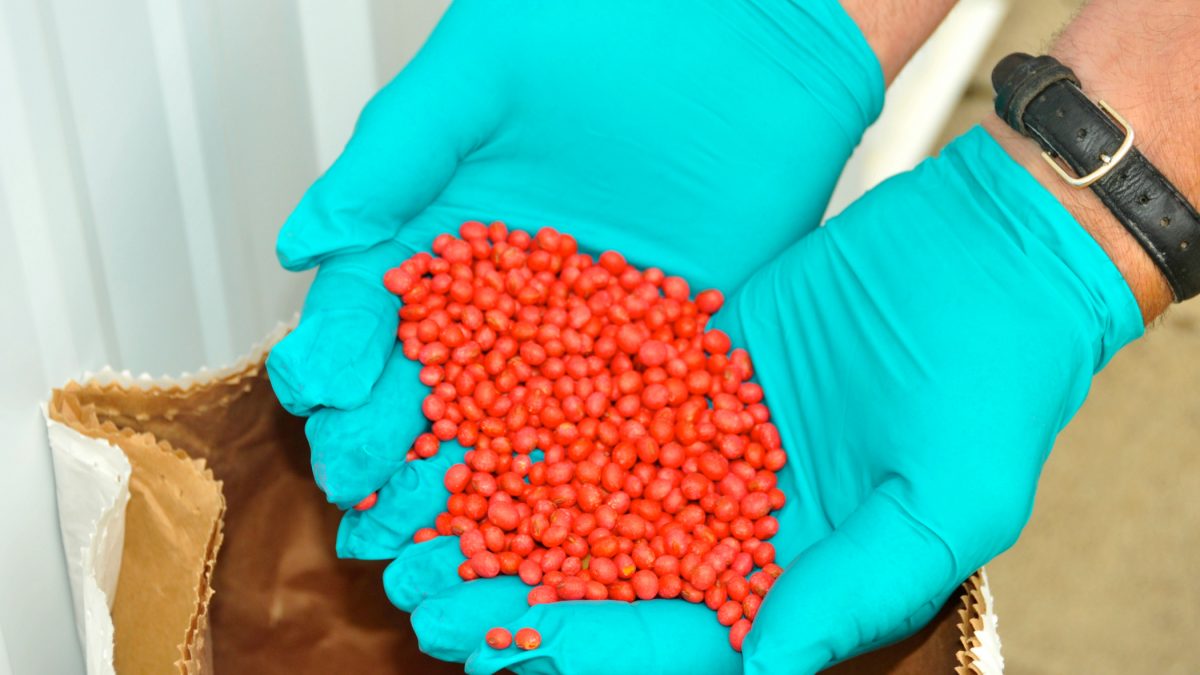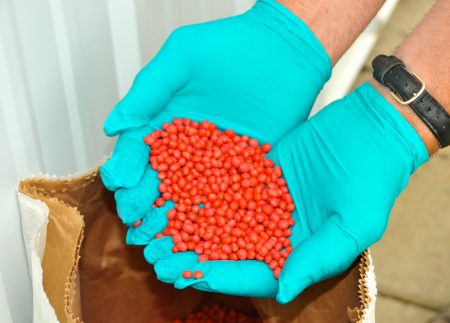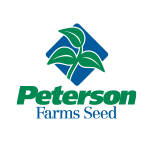Seed Treatment 101: How to Protect Your Soybeans

Should you be treating your soybeans this season? If you’ve never used soybean seed treatment before you probably have questions. To help you with this decision, we sat down with Precision Ag Specialist, Nolan Berg to get his perspective.

Q: What can seed treatment defend against?
A: There are several prevalent issues that seed treatment can help you defend against. While active ingredients vary, the common problems treatments can address in our region include:
- Phytophthora
- Rhizoctonia
- Pythium
- Fusarium
- Seed born fungi that can cause decay, damping off, and seed blight
- Insects like bean leaf beetle, wireworm, seed corn maggot and aphids
- Nematodes
- White mold
Q: How can a farmer justify the added cost of seed treatment?
A: Our modern-day seed has great genetic potential but there’s a lot for a seed to overcome from planting to emergence. Protecting that potential in cold and wet spring planting is crucial and extending protection of plants in poor areas of the field can help increase yield. A small increase in yield can more than cover the cost of treatment.
Q: When should a farmer should choose treated seed?
A: 1) When planting into cold, wet spring conditions. This creates a lot of disease pressure that seed treatment can combat. 2) If you are lowering seeding rates. Seed treatment can reduce risk and help protect the seed that is there. 3) Anytime you’re planting in fields with disease history. This is a defensive strategy.
Q: Are all seed treatments created equal? What should a grower be looking for in a seed treatment?
You should look at products with high active ingredients that protect against the diseases faced here. In the Upper Midwest we deal with Pythium and Phytophthora so our treatments, Peterson Select and Peterson Select+, have high rates of all ingredients, especially Metalaxyl, which increases the effectiveness against those diseases.
Q: Can you break down the different types of treatments out there?
A: There are a few “types” of treatments. In some cases a field may require all of them to combat disease. Your Peterson Farms Seed dealer can help you determine what will be the best strategy for your farm.
- Inoculant- Used to increase soybean nodulation by increasing the presence of Rhizobia.
- Fungicide only- Helps protect against seed and soil born fungal diseases during germination and into the season.
- Fungicide & Insecticide- Fungicide plus the inclusion of insecticide to protect against insect damage.
- Nematicide- Helps protect against nematode damage. Use this when your specific fields have a history of nematodes in the soil.
- White mold- Helps decrease the effect of white mold on soybeans. Use this on fields with a history of white mold.
- Growth promoter- Stimulates plant growth early on in the season. This can make nutrients and plant growth hormones available to the seed for quick emergence.
If you’re considering treated soybeans this year or have questions about Peterson Select or Peterson Select+ soybean treatments, give Nolan a call at (701) 282-7476 or email nolan@petersonfarmsseed.com.










